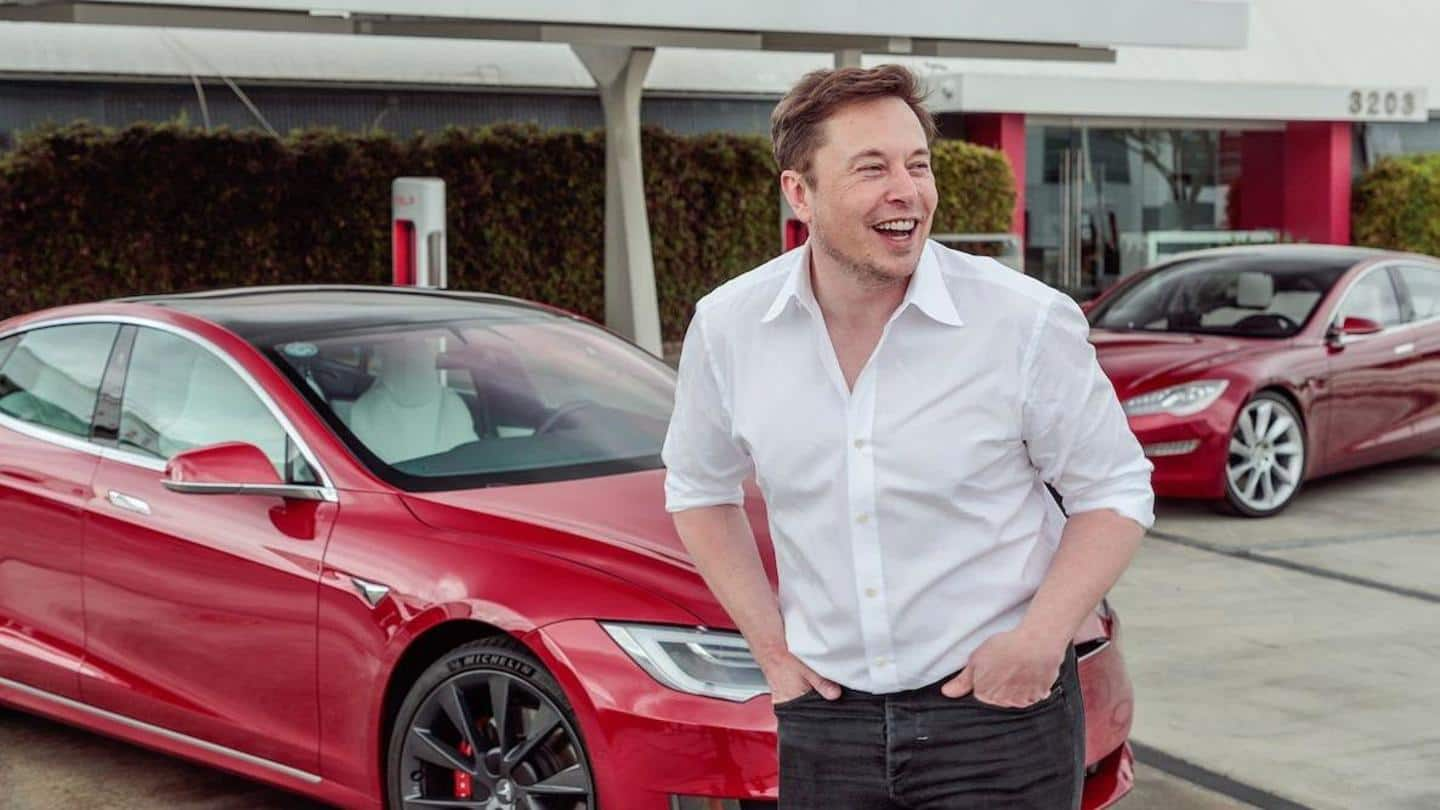
Elon Musk attributes Tesla price hikes to 'supply chain pressure'
What's the story
Prices for Tesla car models have been steadily rising. The company's CEO Elon Musk recently took to Twitter to explain that the price hike is primarily due to the increasing costs of raw materials.
The CEO's tweet also addressed complaints over the lumbar support feature for front passengers in some cars being abruptly discontinued.
Here are more details on what Musk said.
Costlier cars
Tesla has increased car prices five times this year
Popular electric vehicle-related publication Electrek reported that Tesla has bumped up the prices for its Model 3 and Model Y offerings five times since March this year.
After five continuous price hikes, Tesla's cheapest car, the Model 3 Standard Range Plus, has become almost 8 percent pricier (approximately $3,000 price hike).
The Tesla Model Y also became around $2,000 costlier.
Twitter Post
Musk answers price hike query, blames 'supply chain pressure'
Moving lumbar was removed only in front passenger seat of 3/Y (obv not there in rear seats). Logs showed almost no usage. Not worth cost/mass for everyone when almost never used.
— Elon Musk (@elonmusk) May 31, 2021
Prices increasing due to major supply chain price pressure industry-wide. Raw materials especially.
Reason
Twitter user didn't like 'direction Tesla is going,' Musk replies
On May 31, a Twitter user said he "didn't like the direction Tesla is going" in. He added that Tesla removed the Model Y's lumbar feature.
Additionally, he referenced a rumor that prices for (optional) full self-driving (FSD) capability could increase to $14,000 without noteworthy feature additions.
Although Musk didn't mention the FSD price hike in his reply, he addressed everything else.
Details
Price hike due to industry-wide supply chain pressure: Musk
The Tesla CEO explained that logs showed "almost no usage" for the lumbar feature. Moreover, lumbar support was only included for the front seats of the Model 3 and Model Y. Musk said that it wasn't worth the cost and weight for everyone when almost nobody used it.
Additionally, he said that car prices are increasing "due to major supply chain pressure industry-wide."
Supply crunch
Chip shortages, pandemic-induced supply chain disruptions eventually cause price hikes
Carmakers around the world are staring at production shortfalls and inevitable price hikes for customers. While the pandemic-induced logistics and supply chain crunch is partly to blame, manufacturers including Tesla are also battling computer chip shortages that aren't expected to get better until 2023.
In related news, Ford slashed its annual earnings estimate by $2.5 billion due to the chip shortages.